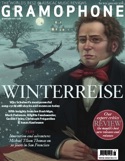Texte paru dans: / Appeared in: |
|
|
Outil de traduction ~ (Très approximatif) |
|
|
Reviewer:
David
Vickers This has a genuinely interesting concept: music for alto voice and basso continuo by six accomplished ‘dilettante’ composers, some of whom were aristocrats or professional men who composed and performed simply out of artistic and philological inclinations. Some don’t fit the profile perfectly: Giacomo Maccari was a paid tenor at St Mark’s from about 1720; his Non mi si dica più is performed by Xavier Sabata and the continuo trio of Latinitas Nostra with complete emotional commitment and dramatic directness, albeit not without a few exaggerated solecisms.
Baron Emanuele d’Astorga eventually inherited his Sicilian family’s title and estates in 1714, and later held official positions in Spain; the melancholic centrepiece of In queste amene selve is performed sweetly by Sabata, Theodoros Kitsos (theorbo), Iason Ioannou (cello) and Markellos Chryssicos (harpsichord). Other bona fide dilletanti include Giovanni Maria Ruggieri, whose music strongly influenced Vivaldi’s Gloria settings; Sabata has sourced continuo‑only accompaniment versions of two arias from Ruggieri’s popular Venetian opera Armida abbandonata (produced numerous times between 1707 and 1715) from a manuscript in the British Library, and the gentle ‘Vinto son della mia fede’ shows the countertenor’s singing at its most tenderly persuasive, accompanied weightlessly by just theorbo and cello. Più ch’io cerco del mio bene reveals that Diogenio Bigaglia, Benedictine prior of San Giorgio Maggiore, composed prettily melodic ideas, to which Latinitas Nostra add some strange pizzicato interludes that insinuate the Venetian villota. A more familiar nobleman dilettante is Benedetto Marcello, who served the Venetian Republic variously as a magistrate, governor and financial officer – but was also an inquisitive composer whose Lucrezia is a tautly dramatic conclusion to this fascinating anthology. |
|
|
|
|
|
Cliquez l'un ou l'autre
bouton pour découvrir bien d'autres critiques de CD |
|




